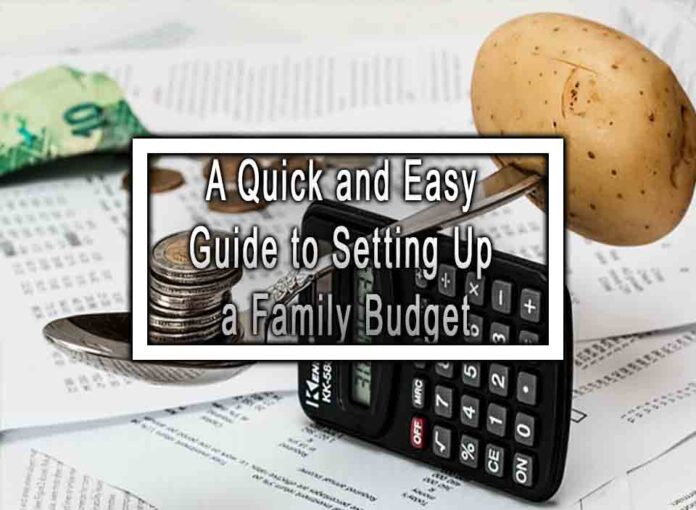Setting up a family budget is a valuable step towards managing your finances effectively and achieving your financial goals. Here is a quick and easy guide to help you get started:
1. Determine Your Income
Calculate your total monthly income, including salaries, wages, bonuses, and any other sources of income. This will be the foundation of your budget.
2. Track Your Expenses
Track your expenses for a month to get a clear understanding of where your money is going. Categorize your expenses into fixed expenses (e.g., rent/mortgage, utilities) and variable expenses (e.g., groceries, entertainment).
3. Identify Financial Goals
Determine your short-term and long-term financial goals. It could be saving for emergencies, paying off debt, saving for education, or planning for a vacation. Having clear goals will help you allocate your resources effectively.
4. Create Categories
Create budget categories based on your expenses, such as housing, transportation, groceries, debt payments, entertainment, savings, etc. Ensure that all your expenses are covered within these categories.
5. Set Limits for Each Category
Assign specific limits or targets for each category based on your income and priorities. This will help you allocate your money efficiently and avoid overspending.

6. Track and Review Regularly
Keep track of your expenses and compare them against your budget regularly. Use budgeting tools or mobile apps to simplify the process. This will allow you to identify areas where you may be overspending and make necessary adjustments.
7. Make Adjustments
Be flexible with your budget and make adjustments as needed. Life circumstances may change, and unexpected expenses may arise. Adapt your budget accordingly to accommodate these changes while staying aligned with your financial goals.
8. Involve the Whole Family
If you’re budgeting for the entire family, involve all family members in the process. Discuss financial goals, encourage open communication about spending habits, and find ways to collaborate and support each other in sticking to the budget.
9. Seek Professional Advice
If you need assistance with budgeting or financial planning, consider seeking guidance from a financial advisor or a certified financial planner. They can provide personalized advice and help you make informed decisions.
Remember, budgeting is an ongoing process. Regularly review and adjust your budget as your financial situation changes. Stay disciplined and committed to your budgeting goals, and celebrate your progress along the way. Over time, you’ll gain better control over your finances and work towards achieving your financial aspirations.











